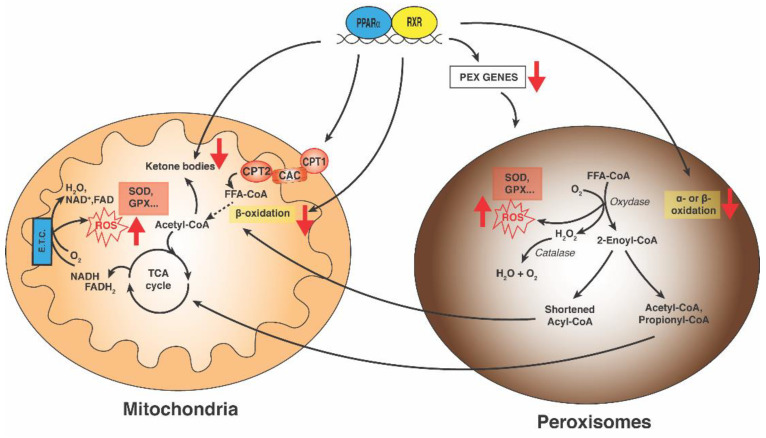Figure 3.
Functional role of PPARα in mitochondrial and peroxisomal lipid metabolism. PPARα regulates the expression of genes involved in peroxisomal α- and β-oxidation of very long chain fatty acids (VLCFA) and branched-chain fatty acids (BRCFA), together with genes of mitochondrial carnitine/acyl carnitine shuttle (CPT1/CAC/CPT2) and β-oxidation fatty acids. Both the mitochondrial and peroxisomal pathways lead to the production of ROS, and many antioxidant enzymes, among which catalase, glutathione peroxidase and superoxide dismutase contribute to ROS detoxification in both cellular compartments. Fat overload causes an elevated hepatic uptake of FFAs (Free Fatty Acids). In NASH, the altered mitochondrial and peroxisomal FA oxidation, together with a decrease in PPARα expression, lead to mitochondrial dysfunction, mtDNA and protein alteration, and a decrease in the electron transport chain, which causes an increase in ROS production. In turn, the dysregulation of peroxisomal biogenesis exacerbates the increase in oxidative stress. Abbreviation: PEX genes: genes of peroxisomal biogenesis factors; SOD: superoxide dismutase, GPX: glutathione peroxidase; ETC: electron transport chain; CPT1: carnitine palmitoyltransferase 1; CPT2: carnitine palmitoyltransferase 2; CAC: carnitine/acylcarnitine carrier.

